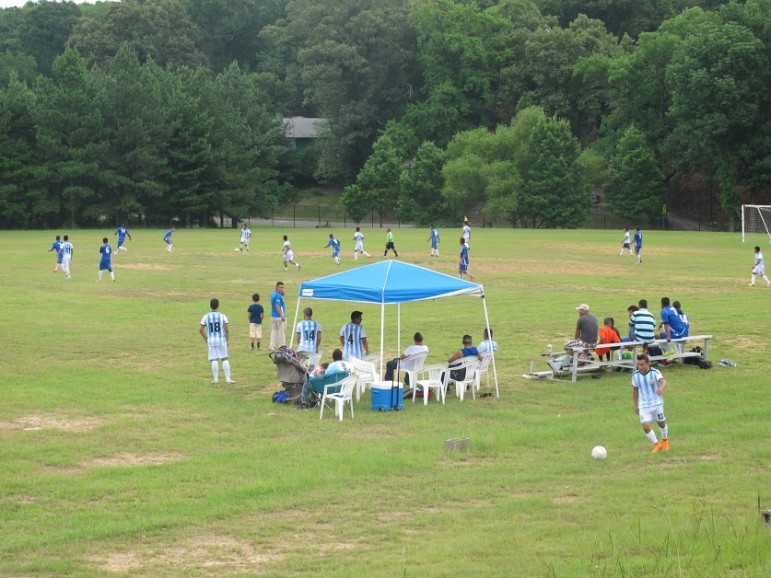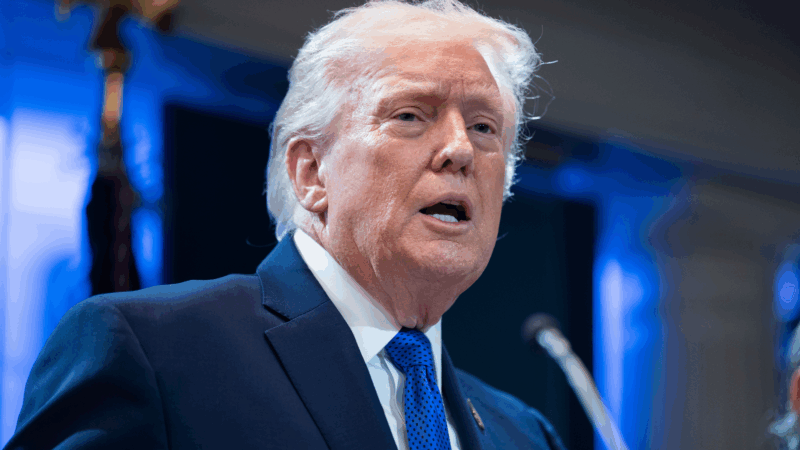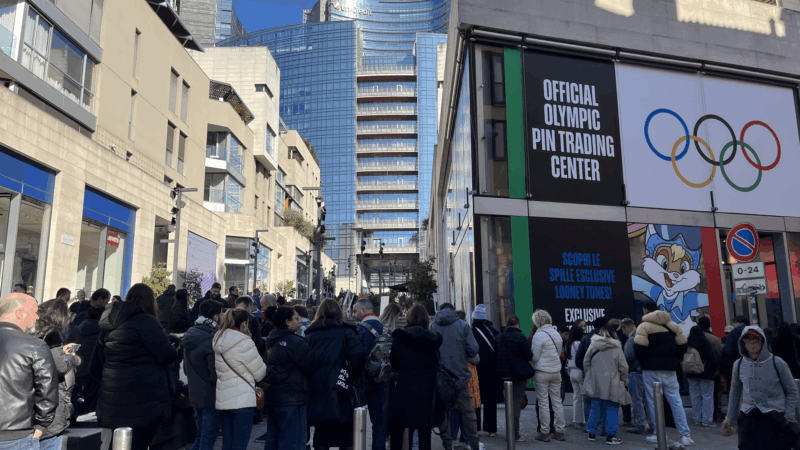For Undocumented Alabamians, Medicaid Cuts Could Make Health Care Even Harder To Find
With Alabama’s more than $200 million budget shortfall, lawmakers are struggling to fund Medicaid, which provides health care for low income individuals and families. Undocumented immigrants can’t receive care under Medicaid, but advocates for the undocumented say any Medicaid cuts could make health care even more difficult to find for this marginalized group.
Some are looking for other ways to help the undocumented pay for care. On a recent Saturday, Spanish cheers echo across the soccer fields at Carver High School in North Birmingham. Men in blue jerseys brave the heat while volunteers prepare fresh tacos and pass out sodas.
“We’re selling chips for a dollar, sodas for a dollar, tacos for 2 dollars,” explain two teen volunteers.
Sitting off to the side, a middle-aged man in a wheelchair rests in the shade and takes it all in. His name is Martin, and he is the center of the day’s’ festivities – a soccer tournament called “Angels Over Wheels.” The event is a community-led effort to raise money for Martin, who explains that he came to the US in search of a better life.
“I arrived in 2001. Like all immigrants, I came here to find work and make money to return to my country,” says Martin.
But after just two years living and working in the U.S., Martin says he fell from a ladder at his construction job, suffering a severe spinal cord injury. He has not walked since the accident, unable to afford physical therapy that could help him regain control of his legs. He says, “I don’t have insurance, because I don’t have papers.”
Undocumented immigrants in Alabama like Martin cannot receive state or federal assistance to cover the costs of health care. They often use charity clinics or hospital emergency rooms.
Kari White is an assistant professor with UAB’s School of Public Health. She says that less funding for Medicaid would trickle down, leaving providers with fewer resources to help the poor and undocumented. She explains, “a group that already had disparate health care outcomes for a variety of reasons – limited access to care, low socioeconomic status – they’re going to be left further and further behind.”
At Cahaba Valley Health Care in Hoover, volunteers perform vision and dental screenings. This charity clinic caters to the local Hispanic community. Edwinna Taylor started it in 2001; she feels that health care access for the undocumented is already strained. She states, “You know it’s just not a friendly state for undocumented people. And they’re just afraid. They just don’t know who to trust.”
Taylor says even though her clinic does not receive state funding, cuts to the Medicaid budget could increase their patient load. This means more competition for appointments, and less time and money to treat undocumented immigrants. Taylor says it’s already a struggle to find specialized care for undocumented patients with chronic conditions. She explains, “The hard part is finding the specialists; finding the hospitals, finding the ones that will do the tests, that will provide the long-term care. It’s extremely difficult, if not impossible.”
Often, the only option for undocumented patients who need specialized care is through a hospital emergency room. Monique Okoye is an immigration lawyer with Vulcan Law Firm. She argues emergency room care is ineffective and costly for the entire health care system. “We should not be forcing people to use emergency rooms as their primary care physicians,” she explains. “Because number one it’s too expensive and it’s driving up costs for all of us, and number two people are having to wait until they’re desperately ill to be treated.”
Providers like UAB Hospital and Cooper Green Mercy Hospital say they lose millions of dollars every year from unpaid patient bills. If the state opts to cut Medicaid spending, these providers lose even more funds. Hospital officials say it would be increasingly difficult to treat those most in need.
Undocumented immigrants currently represent a small portion of Alabama’s uninsured, but Alabama has one of the fastest growing Hispanic populations in the country. In a way, that might be a good thing, says Okoye. She explains that immigrants, documented or not, support one another.
“It’s amazing how immigrant communities in the United States – and not just Latino communities but all immigrant groups in the United States – how they work together,” says Okoye. “Damage to one person in their community – it ripples.”
The volunteers raising money for Martin agree. Many say they experience the same barriers to health care as Martin, Like Benito. He’s also undocumented, and eager to pitch in. Benito says, “He (Martin) is immobile and unable to fend for himself and we are here hosting an event to help him.”
They day’s event raised around $2,000 to cover Martin’s medical expenses. While he continues to receive checkups from local charity clinics, Martin doubts he’ll ever be able to afford physical therapy. But despite what he’s been through, he says he’s optimistic, stating “I feel good. I feel grateful. The Latino community is very united.”
Organizers say they plan on hosting more events like this. For now, this type of community support looks to be the only financial assistance available to some area undocumented immigrants. They’re hoping cuts to Medicaid don’t push them out of the few places where they can receive care.
Mississippi health system shuts down clinics statewide after ransomware attack
The attack was launched on Thursday and prompted hospital officials to close all of its 35 clinics across the state.
Willie Colón, salsa pioneer, has died at 75
The South Bronx bandleader took the Latin genre to new heights while recording for Fania Records.
Vietnam Veterans sue to block proposed ‘Independence Arch’ near Arlington National Cemetery
The lawsuit challenges President Trump's plans for "Independence Arch," a 250-foot structure proposed for Memorial Circle.
Trump to raise global tariffs to 15%
President Trump previously said he would implement 10% global tariffs after the U.S. Supreme Court struck down his tariff policies.
Pin trading has taken over the Olympics. Here’s what it’s like in Milan
Pin trading has become a hallmark of the Olympics in recent decades — and not just for athletes. An official trading center in Milan was a hotspot for longtime collectors and curious newcomers alike.
US military airlifts small reactor as Trump pushes to quickly deploy nuclear power
The Pentagon and the Energy Department have airlifted a small nuclear reactor from California to Utah, demonstrating what they say is potential for the U.S. to quickly deploy nuclear power for military and civilian use.






